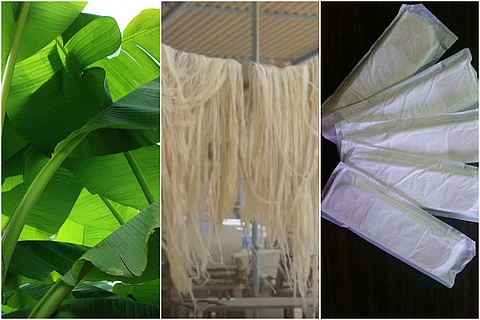

Only 12% of 355 million menstruating women in India use sanitary napkins, according to one study.
Another study reveals that one in three women miss almost a month of work each year, due to lack of reliable sanitary pads or tampons.
While increased awareness and production of affordable sanitary napkins seem to be likely solutions, most napkins available in the market are disposable but not biodegradable.
Wanting to solve the problem and also make low cost pads available to women in the country, Saathi, an Ahmedabad-based company, is making biodegradable pads that are "sustainable" and also "highly-absorbent".
Watch this Al-Jazeera video to know how Saathi pads are made:
Founded by a group of MIT alumni in December 2014, this organisation transforms waste banana tree fibre into environmentally sustainable and affordable sanitary pads.
With an aim to spread it in rural areas to low-income women at a subsidised rate, they plan to generate revenue from urban sales from 2017.
Saathi founder Kristin Kagetsu told Your Story:
"I don’t believe that we should make a product that we haven’t thought through. Just a low cost sanitary pad isn’t thinking through the entire the life cycle of the product. If you’re going to make a disposable product then you have to care about what happens to it and how it affects the environment. Otherwise, how would we be different than any other sanitary pad maker out there?"